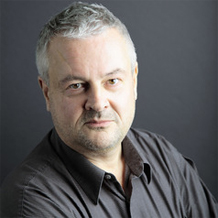project
Learning from science communication's past: a historically informed approach to reciprocity, citizenship and diversity in a social contract for science.
14 February 2012 - 13 August 2012

PI/s in Exeter: Professor John Dupré
Research partners: In collaboration with Professor Graeme Gooday (University of Leeds)(lead), Dr Jonathan Topham (University of Leeds), Professor James Secord (University of Cambridge), and Professor Michael Christopher Hardy (Coventry University)
Funding awarded: £ 1,756 (total funding of £ 23,821)
Sponsor(s): AHRC
About the research
This project will explore how approaches from the history of science, and especially of the history of its communication, can benefit and feed into to a freshly enhanced and more inclusive approach to science communication. By drawing upon past lessons concerning effective and ineffective modes of science communication, this project will explore more creative, openended ways of engaging with communities beyond those typically reached by such initiatives, with an emphasis on routes to accomplishing effective two-way reciprocal interactions between science and society.
It will bring together academics and practitioners from a range of sectors to tackle questions about the cultural, philosophical and historical context of the sciences and science communication both with diverse audiences and communities in the UK and to link this to the broader global cultural context of these communities. This will include those working in history and philosophy of science, science communication, community cohesion, and media professionals.
Alongside this professional networking activity, the teams will undertake focus group work with both UK and international
groups of young people to gauge perceptions around community identity, including faith identities, in relation to recent scientific controversies, ongoing debates about perceived clashes between science and other cultural perspectives At its core, this project will ask: how can science communication learn from its past in order to be able to engage more sensitively and effectively with diverse communities that have hitherto barely been engaged by it, or indeed who have felt alienated from it? Studying the past development of scientific and science communication discourses, provide us with the
opportunity for a combined approach across the humanities and sciences to tackle current and future controversies in public perceptions of such key areas as climate change, epigenetics and genomics, evolutionary theory, neurosciences and Artificial Intelligence, among others.
In recent years in the UK, one particularly problematic feature of the relationship between 'science' and the world views of distinct communities, including faith communities, is the growing populist conception that science is inevitably atheistic. Similarly, in the international context, 'Western science' is sometimes categorized by multicultural critics at the extreme end of the spectrum as 'Christian Science' or in the case of the UK as 'imperialistic' in approach, methodology or worldview by those from diasporic heritages. What we can see here is clearly a congruence between the historical communication of science and the geographical routes by which key ideas in science have been disseminated. One key example is
'Darwinism': both historically and in a global context, the promotion and reception of this has been filtered through a range of different cultural, ideological and political lenses. This has had a major, and often not productive effect on the perception of evolutionary science and on related scientific research today. Thus the project looks in detail at how the past of science communication has lessons for enhanced reciprocal dialogue to create a new social contract between scientists and other audiences within UK culture.
To address these concerns, the project will develop a network based on public focus group work with relevant 'hard-toreach' community groups, drawing upon a UK based two-three day open innovation workshop with international and UK partners and participants. The overall result will be a comprehensive resport with recommendations on:
- Potential future multidisciplinary research themes or draft project proposals
- Potential future knowledge transfer project recommendations or proposals with academics, policy influencers, media professionals and practitioners
- Potential pathways to impact for any future project

